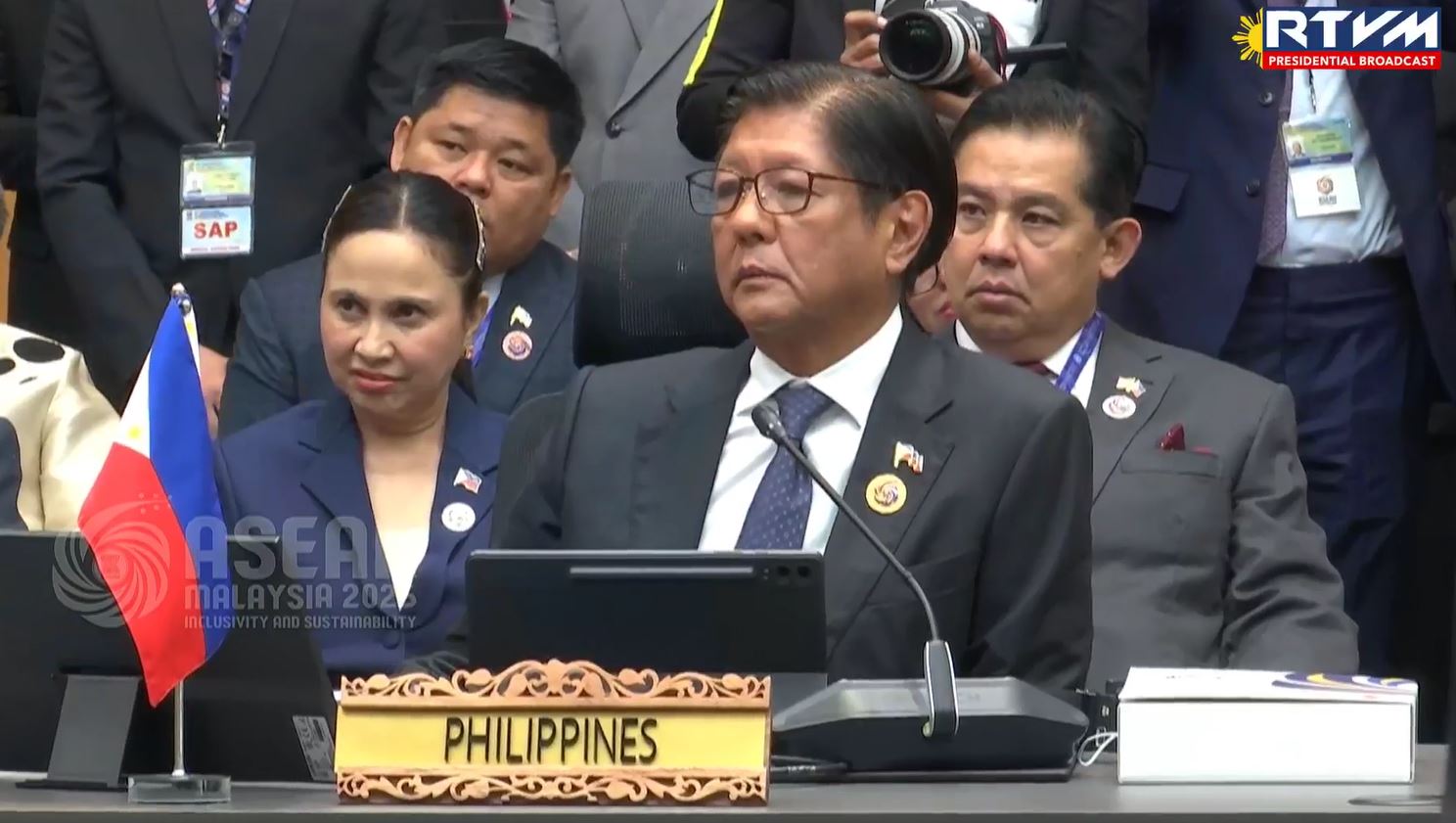
The Honorable Dato’ Seri Anwar Bin Ibrahim, and allow me on behalf of all of us, to take this opportunity to thank you for your gracious hospitality and kindness as this year’s Chair.
Your Majesty,
Excellencies,
At the outset, the Philippines conveys its deep appreciation to Malaysia for its Chairship and for advancing the theme of “Inclusivity and Sustainability.” This theme aptly reflects not only the aspirations of our region, but the shared responsibilities that we must embrace in today’s evolving global landscape.
In an era marked by sometimes dizzying transformation, we are reminded that while progress can uplift nations, there is also a risk of leaving segments of our society behind.
Inclusivity, therefore, must not be treated as an ideal that is achieved by development, it is the foundation upon which sustainable and resilient growth is built.
In the Philippines, our national strategies help define our path towards deeper stability and security. Yet these objectives can only be realized by working together with our partners, as we collectively navigate a constantly shifting global architecture.
Sustainable growth requires that we invest in our people. Each of us must contribute to win the future that we envision for our community.
Inclusive development is equitable, empowering, and transformative.
Accordingly, we build resilient communities equipped to face climate change, health crises, and economic disruptions. We implement welfare programs to ensure that dignity and opportunity are not lost even in times of crisis.
In line with the ASEAN Community Vision 2045 and its pillars, the Philippines will continue to work so that ASEAN should be secure, peaceful, and stable, governed by the rule of law, prosperous and innovative, emerging as a resilient, innovative, dynamic, and people-centered community.
With over 30 million young people in the Philippines, we regard the youth as the heart of societal transformation, the key driver of ASEAN’s future, and the incoming leaders
of good governance, innovation, and creativity.
As the engines of the region’s economic dynamism, ASEAN’s workers, professionals, and service providers must be equipped with the skills, protections, and opportunities that they need to thrive.
But as we chart our path forward, let us also acknowledge the growing complexity of challenges that we face.
In this increasingly interconnected world, we find ourselves, and our gains, at risk when our current stability is challenged.
Geopolitical tensions, unexpected trade barriers, and the unprecedented impact of climate change have the potential to disrupt our communities, supply chains, and remove our hard-earned progress.
Yet, by working together, strengthening our institutions, and building the resilience and capacities of our people, we can better navigate this increasingly uncertain future and turn challenges into opportunities for shared growth and stability.
We underscore the urgent need to accelerate the adoption of a legally binding Code of Conduct in the South China Sea to safeguard maritime rights, promote stability, and prevent miscalculations at sea.
We commend Malaysia’s leadership in convening the Special ASEAN Economic Ministers’ Meeting and welcome the consensus to avoid retaliatory measures.
This measured and unified approach upholds ASEAN’s commitment to dialogue, diplomacy, and a rules-based multilateral trading system.
Effective responses to transnational crime require robust cooperation, timely intelligence-sharing, and strengthened law enforcement.
The Philippines reaffirms its commitment to the full implementation of the ASEAN Declaration to Prevent and Combat Trafficking in Persons Caused by the Abuse of Technology.
Climate change as well is now the most defining and cross-cutting challenge of our time.
As one of the most climate-vulnerable regions globally, nearly half of the entire ASEAN population faces significant climate-related risks.
As the host of the Board of the Fund for responding to Loss and Damage, the Philippines will continue to advocate for scientific and evidence-based, investment-led, and transformative solutions to the climate crisis.
In this regard, we urge ASEAN’s partners to scale up predictable, accessible, and adequate climate finance to enable ASEAN to realize its climate ambitions and safeguard the future of our communities.
We also call for deeper regional cooperation to address these emerging and transboundary challenges.
My dear colleagues, in 2017, as ASEAN Chair, the Philippines undertook to Partner for Change and to Engage the World.
Since then, ASEAN has welcomed:
– one (1) additional Full Dialogue Partner;
– four (4) Sectoral Dialogue Partners;
– five (5) Development Partners; and
– twenty (20) countries which have acceded to the Treaty of Amity and Cooperation in Southeast Asia.
This reflects ASEAN’s growing voice not only in our immediate region, but in the world.
ASEAN has always been an outward-looking community, guided and anchored by a common set of values, our love for peace, and concern for the welfare of our peoples.
Let me thus urge all Member States to remember that to meaningfully engage our partners, we must advance these values and interests sensitive, of course, to our external partners’ respective strengths and challenges.
Let us, therefore, continue engaging our partners not merely to expand networks, but to uphold and project the values that define ASEAN— peace, inclusivity, and shared progress.
As we support Malaysia’s ASEAN Chairship in 2025, we stand ready to build on our shared achievements and sustain momentum until 2026.
Maraming salamat po. Thank you all.
— END —

